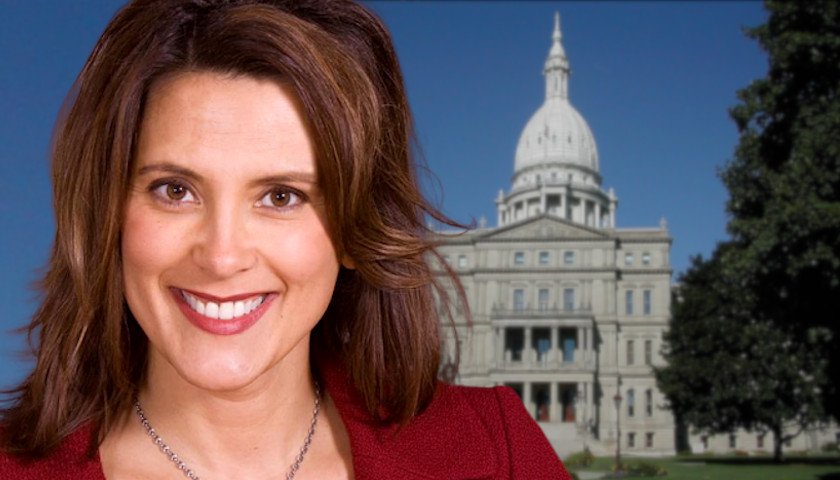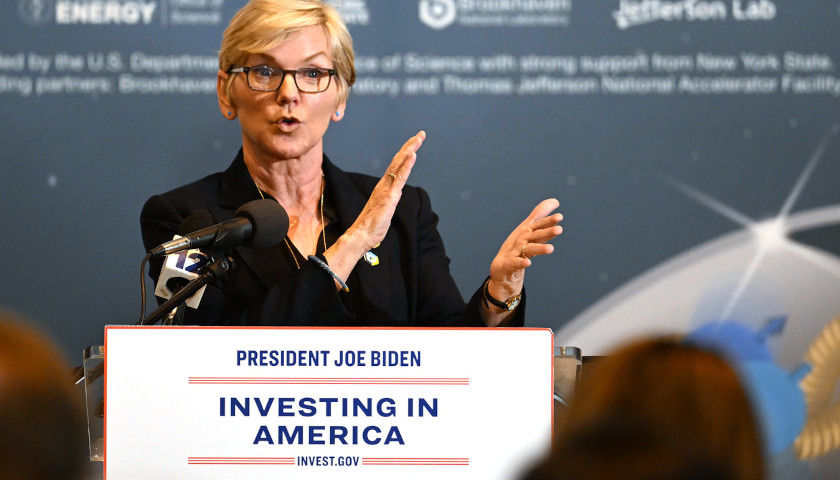by Bruce Walker
The Michigan Freedom Fund is seeking answers from Secretary of State Jocelyn Benson related to her decision to allow Gov. Gretchen Whitmer to disburse questionable campaign donations to other Democratic candidates.
The conservative MFF filed a formal request Friday for a declaratory judgment from Benson – who, like Whitmer, is a Democrat – over $3.4 million collected from 119 large donors. Michigan Campaign Finance law limits individual donations to $7,150, but allows an exemption to accept unlimited contributions if a governor is facing a recall attempt.
At the time Whitmer accepted the contributions, there was no active recall effort.
Benson issued a determination in December that state campaign finance law does not require the governor to return the money to the initial donors. It does, however, allow her to remit, or “disgorge,” the monies to other campaign war chests.
“Gretchen Whitmer made the biggest unethical campaign cash grab in Michigan history, and Jocelyn Benson ignored campaign finance law and serious ethical complaints to essentially let the Governor keep it,” Tori Sachs, MFF executive director, said in a statement.
“Jocelyn Benson has usurped the role of the Legislature, ignored how the Department customarily remedies excessive contributions, and gave Whitmer’s illegal donors a pass. Michigan campaign finance law matters, which is why we’ve filed a formal request for a declaratory ruling,” Sachs continued.
Whitmer raised a record $8.65 million in 2021 with $10.7 million cash on hand. Of that sum, $3.4 million was raised from 119 large donors, including Illinois Gov. J.B. Pritzker, who gave $250,000. Attorney Mark Bernstein, brother of Michigan Supreme Court Justice Richard Bernstein, donated $257,150.
The MFF declaratory ruling request includes five specific interrogatives, including:
1. What authority allows Jocelyn Benson’s Department to not enforce the Michigan Campaign Finance Act’s contribution limits?
2. What authority allows the department to deviate from its usual practice to remedy an excessive contribution by refund to the contributor, and create a “disgorgement” remedy for an active candidate committee based on a statute which applies only “upon termination of a candidate committee”?
3. What authority allows the department to shield a contributor from liability for exceeding statutory contribution limits contrary to the express language of MCL 169.252(1) and shifting all “potential violations [to] the committee that accepts contributions” notwithstanding that both contributor and committee are liable for violating the Act’s contribution limits?
4. What authority allows the department to avoid notifying a respondent of a campaign finance complaint within five business days after the filing of a complaint as required by MCL 169.215(5)?
5. What authority allows the department or the secretary of state to review a campaign finance complaint relating to a major donor of the secretary of state’s candidate committee in light of MCL 169.215(9) which precludes the secretary of state’s review of a complaint that “involves the secretary of state, the immediate family of the secretary of state, or a campaign or committee with which the secretary of state is connected, directly or indirectly”?
MFF filed a formal campaign finance complaint in July against Whitmer’s campaign committee over what the group alleges is an illegal fundraising scheme.
– – –
Bruce Walker is a regional editor at The Center Square. He previously worked as editor at the Mackinac Center for Public Policy’s MichiganScience magazine and The Heartland Institute’s InfoTech & Telecom News.
Photo “Michigan Capitol” by Nikopoley CC BY-SA 3.0.








